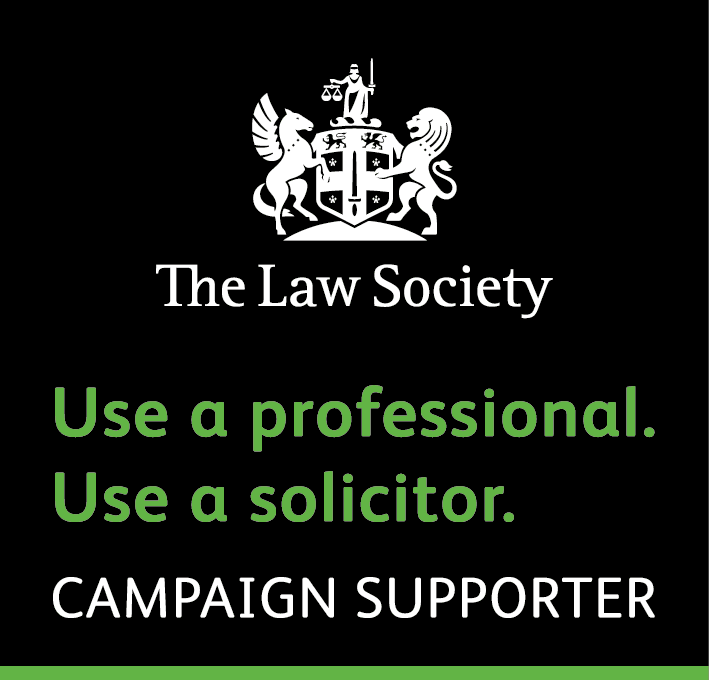Services
Can I negotiate a better settlement agreement payment?
This is a question we often get asked by employees when instructed to advise on settlement agreements. Most settlement agreements will be drawn up with the intention to terminate the employee’s employment once the terms are agreed. Answering this question is an integral part of the process of considering whether or not the proposed settlement agreement should be accepted on the terms offered. The principal purpose of a settlement agreement for your employer will often be to stop you from bringing an employment claim in connection with your employment.
This guide will help you consider the merits of negotiating better terms of a settlement agreement and given you some guidance on how to approach negotiations with your employer. The most common negotiations issues covered below include:
> Settlement Agreement Meetings
> Avoid handing in your notice
> Settlement agreement first offers
> Understand what claims you may have and what they are worth
> Give some thought to how your employer is likely to respond
> Be confident and play hardball
> Consider the tax implications of your settlement agreement
> Try not to burn your bridges
> The benefits of contacting a solicitor as early as possible
Key points to consider before negotiating
- The settlement agreement is not binding and you are under no obligation to accept the terms proposed;
- The terms of the settlement agreement are negotiable and the proposed terms are not set in stone;
- Remember once the settlement agreement has been signed off you will usually be giving up your right to bring the employment claims set out in the agreement against your employer;
- If you negotiate with your employer, the negotiations will be classed as confidential and generally speaking neither you nor your employer could use the discussions in an Employment Tribunal;
- All communications should be marked using the wording ‘without prejudice’ to ensure they attract protection and cannot be used against you in the tribunal or court;
- If you feel you are being forced into signing the settlement agreement or being subjected to discrimination, harassment, bullying, intimidation or the use of offensive words or behaviour, threats of or actual physical assault during the confidential discussions this may amount to what is called ‘improper behaviour’ and could be used against your employer in an Employment Tribunal;
- The settlement agreement must be signed off to be legally binding.
If you wish to negotiate the terms of your settlement agreement, we have set out the key tactics and steps which can be used to your advantage to maximise your settlement. Our specialist solicitors have decades of combined experience in succeeding in negotiating the best possible outcome. Not sure what step to take we will work to help you get the settlement you deserve. Call our team today.
1. Settlement Agreement Meetings
When you are first offered a settlement agreement it may well be a shock if unexpected. It is important to stay calm and level headed. Your employer is likely to have had the benefit of advice from HR and their legal advisors in the background before the settlement agreement proposal was put to you. You should therefore try to avoid negotiating straight off the bat. Ask them for time to consider their proposal. This will allow you to consider what is being offered, to take legal advice and formulate a considered response.
2. Avoid handing in your notice
This will almost certainly reduce your bargaining position. Most employers will be looking to achieve 3 goals when offering a settlement agreement:-
- Save time with a quick settlement;
- Secure your agreement to terminate your employment;
- Secure your agreement to waive your right to bring specified employment claims against them.
Should I walk away and resign? If you give them what they want by resigning before you sign the agreement it may result in the employer
- withdrawing the settlement agreement;
- making the original terms less attractive;
- sticking with their first offer and refusing to negotiate further.
3. Settlement agreement first offers
When considering a settlement agreement offer, most employers will have a bracket to work within, with regards to the money offered as compensation for loss of your job. It makes commercial sense for an employer to make an offer at the bottom end of the bracket first to see if you take it, thereby saving themselves money.
There is always a risk that the employer may withdraw the settlement agreement offer if you try to negotiate, however this is rare and a counter offer is often something the employer will be expecting in most cases.
4. Understand what claims you may have and what they are worth
Ultimately the decision to negotiate should be based on an assessment of what claims you may have against your employer. The settlement agreement will set out the claims your employer will be looking to stop you from brining in the employment tribunal.
Once you have identified the claims which are relevant to you, consideration should be given to what these claims could be worth in the Employment Tribunal. This will help you decide whether or not any sum offered by your employer as compensation for the loss of your job is reasonable or not.
If you need assistance on identifying the potential claims and their value we advise you should seek independent legal advice from an expert employment solicitor. An experienced settlement agreement solicitor will guide you on any potential claims you may have and assess if the terms of your settlement agreement are fair.
5. Give some thought to how your employer is likely to respond
Employers will always consider any attempt to negotiate for more money carefully and only increase on the sum if they feel there is sufficient merit in a claim against them and a risk that you may secure more compensation from the Employment Tribunal if an agreement is not reached with a settlement agreement.
The following will help you gauge the response you may receive:
- Consider what approach your employer has taken in the past.
- Consider what approach they have taken with colleagues around you who may also have been offered a settlement agreement.
- Have they refused to negotiate?
- Have they responded positively to negotiations?
- Has your employer made any open admissions to you with regards to the potential claims you may have?
- Have other employees taken matters to an Employment Tribunal previously? Did they settle them quickly?
Ultimately if you have good foundations for a claim and the current compensation offer falls short of what you may recover from an Employment Tribunal – you should go back with a counter offer. The opportunity of agreeing a settlement agreement instead of defending an Employment Tribunal claim will always be attractive to your employer for the following reasons:
- It’s cheaper because there are limited legal fees;
- It’s quicker because tribunals claims can take months to resolve;
- it provides certainty because the terms are agreed.
A settlement agreement is often a better option for you for the same reasons. Compromise on both sides is often the key to a successful negotiation. You may well have to compromise on the amount of compensation you accept as part of a settlement agreement to reach an agreement. However, this is often offset by the legal fees you may have to pay as part of an employment tribunal claim.
Often the most important principle at this stage is to be realistic and put forward a well-judged counter offer which is neither to high nor too low. Successfully negotiating a settlement agreement will require a level of compromise on both side if an agreement is to be reached.
Some of the key points which should guide you on a settlement agreement counter offer include:
- Your length of service;
- Your current salary;
- The length of time it would take to find a new role;
- Any bonus or commission due;
- Terms of your employment contract entitling you to an enhanced termination payment;
- The tax implications of any payments offered;
7. Be confident and play hardball
Once you have reached a counter offer, you should give careful consideration on how to convey this to your employer. Our top tips include:
- Put forward a counter offer at the top end of your assessment. Employers will very rarely accept your first counter offer and will often make a further counter offer;
- Don’t exaggerate the value of any potential claims. Remember most employers have the assistance of HR and legal advisors so they will have the resources to consider if an offer is reasonable or pie in the sky;
- Don’t undervalue your claim. Remember the money you receive at this stage will be necessary to support you financially until you secure a new role. You could therefore end up suffering unnecessary financial hardship.
8. Consider the tax implications of your settlement agreement
The payments you agree to receive under the settlement agreement are subject to income tax and national insurance contributions under the PAYE scheme as normal.
However, as a general rule compensation for loss of your job and redundancy payments are exempt from tax up to a maximum of £30,000. All other payments which are not ‘compensatory’ in nature will be taxed as normal. This will include contractual payments such as salary, commission/bonus payments and notice paid in lieu.
9. Try not to burn your bridges
In some circumstances, there may not be any genuine commercial or legal reason for an employer to pay you more money. This will often will be if you have worked for your employer for a short period of time or you are facing a genuine redundancy situation and a fair process has been followed in the background.
Your negotiation tactics may include factors that would not normally assist in a legal claim against an employer. This may include:
- Your contribution to the employer’s business or organisation
- The difficulty you will be in as a result of losing your job
- The sacrifices that you have made personally to benefit the company
- The difficulties you are likely to face in the job market
Any negotiations in such cases will be done based on goodwill. Maintaining a good relationship during negotiations will be more fruitful in securing you a better settlement agreement offer.
10. The benefits of contacting a solicitor as early as possible
Engaging with an experienced settlement agreement solicitor early on will make sure you avoid the may pitfalls with negotiating with an experienced employer backed by HR and a legal team in the background.
Your solicitor can help you plan your negotiating strategy and deal with issues which often be complex such as:
- Identifying potential claims
- Valuing likely compensation awards from the Employment Tribunal
- Quantifying sensible counter offers
The advice your solicitor provides at this stage could prove invaluable in maximising your settlement agreement payments.

Solicitor Call Back
Request a FREE no obligation consultation with a solicitor by completing the form below
You can learn more about how we handle your personal data by viewing our Privacy Policy
Ready to speak to an employment law expert?
What makes SA Solicitors different ...
Common settlement agreement issues our solicitors deal with ...
> Counter Offers
> Negotiating Tactics
> Termination Payments
> Compensation Payments
> Grievance Issues
> Notice Pay
> Tax Payments
> Furlough Advice
> Discrimination
> Constructive Dismissal
> Unfair Dismissal
> Redundancy
> Bullying & Harassment
> Sick Absence
> Disciplinary Proceedings
> Capability Arguments





